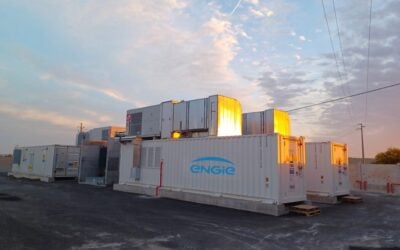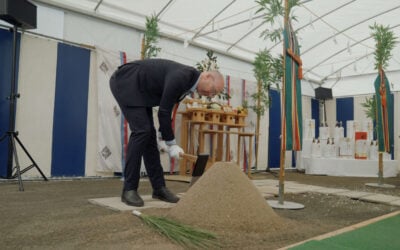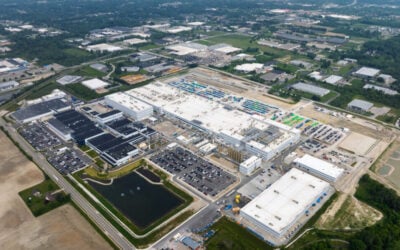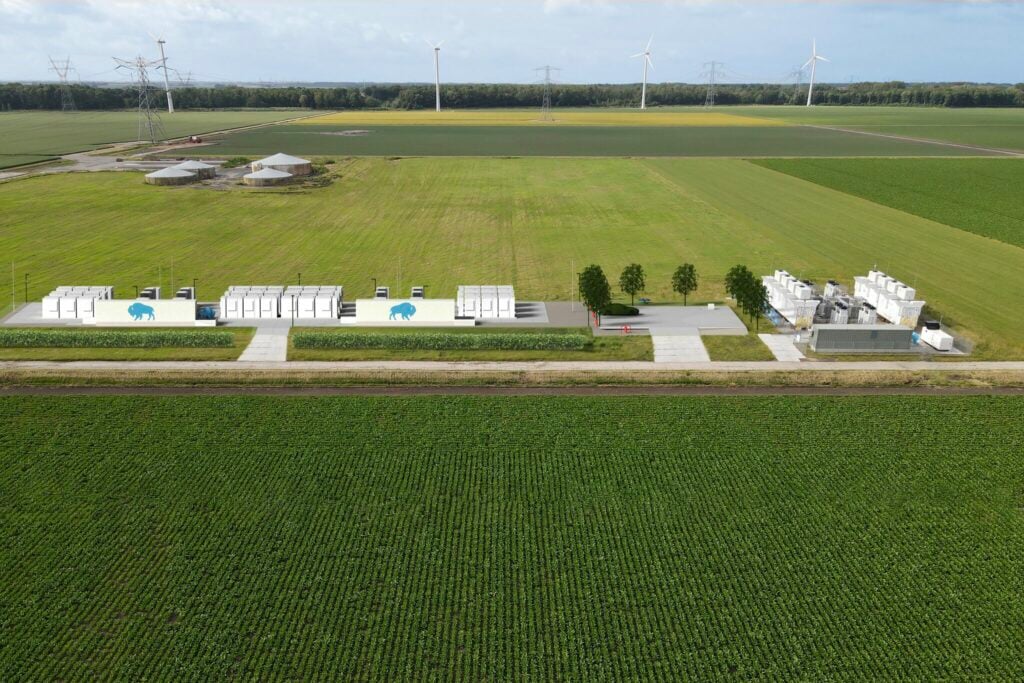
The largest battery energy storage system (BESS) project in the Netherlands so far will also be Europe’s first large-scale grid storage project to use lithium iron phosphate (LFP) battery technology, technology provider Wärtsilä has claimed.
Wärtsilä will supply the full 25MW / 48MWh BESS solution for customer GIGA Storage, a Dutch developer, owner and operator of energy storage. The system will be connected to Widnet, a smart grid at Wareningen University in Lelystad, central Netherlands.
Enjoy 12 months of exclusive analysis
- Regular insight and analysis of the industry’s biggest developments
- In-depth interviews with the industry’s leading figures
- Annual digital subscription to the PV Tech Power journal
- Discounts on Solar Media’s portfolio of events, in-person and virtual
Colocated with wind and solar assets, the BESS will serve a number of different grid-balancing applications.
With financial close having been achieved in early December, the system is expected to go into commercial operation in October 2022.
As well as the being the first application of a relatively new technology, the fact that the project, called GIGA Buffalo, is being financed by two major banks represents a “major step” in the right direction for the Netherlands energy storage market, GIGA Storage CEO Ruud Nijs told Energy-Storage.news.
GIGA Storage has settled on a business model which involves essentially renting out battery storage assets to energy management, aggregator and trading companies. Buffalo is being “fully rented out” to trading company Eneco, in what Nijs described as a “STAAS: Storage-as-a-service” model.
With the Netherlands targeting 49% greenhouse gas (GHG) emissions reductions by 2030 and 95% reductions by 2050 compared to 1990 levels, GIGA Storage believes there is strong potential for energy storage in the country. Chief operating officer Maarten Quist said that, starting with projects in the Netherlands, his company is targeting the deployment of 1.5GW of storage in Europe by 2025.
It will be Wärtsilä’s first battery project in the Netherlands, with the company having just announced a supply order for a 25MW / 100MWh BESS in neighbouring Belgium for an undisclosed customer.
For GIGA Storage, it’s the company’s second in the country, with the first, GIGA Rhino, having just celebrated its first anniversary since commissioning in November 2020. GIGA Rhino is equipped with nickel manganese cobalt (NMC) battery cells and is a shorter duration system of 12MW / 7.5MWh.
‘Project finance deal is major step forwards for Netherlands market’
“At the moment we bought that first battery, it was simply not affordable for us to go for LFP. The first one is air cooled and the second one will be liquid cooled, which actually balances temperature much better,” CEO Nijs said.
For GIGA Storage, there were “big advantages” for choosing LFP over NMC this time round: firstly, Nijs said, LFP being less at risk of overheating and causing thermal runaway in cells, but also that there are fewer “vulnerable natural resources” used, such as cobalt.
The differences between the two projects are also in their applications, which partly explains the longer duration of GIGA Buffalo at nearly two hours. The smaller GIGA Rhino BESS is very well suited for the Frequency Containment Reserve (FCR) primary frequency regulation ancillary service and the system is connected to a closed electricity distribution system in the middle of the Netherlands.
Connected to wind and solar assets, GIGA Rhino is charged with close to 100% renewable energy, excepting periods of low to no sunshine or wind.
Linked to that closed distribution system, it “manages the continuity of the green energy output and manages the connection points to the transmission system operator (TSO),” and so far is doing a good job, the CEO said.
The second, longer duration system is suited not only for FCR, but also to automatic Frequency Restoration Reserve (aFRR) and manual Frequency Restoration Reserve (mFRR), the frequency services that require more energy and therefore more duration.
Financing GIGA Rhino was a lot more challenging too and it was “really, really difficult to get banks convinced of long-term risk mitigations,” Nijs said, for assets that need to be written off in 15 or even 20 years.
Similarly to how financing wind and solar PV was initially challenging a few years ago but gradually became standardised and financeable, energy storage is a new proposition. GIGA Storage received a subsidy from the Dutch government for its first project and combined that with a novel crowdfunded approach which raised €3 million (US$3.38 million), then Dutch sustainable bank Triodos topped off the funds for it to reach financial close.
For GIGA Buffalo, Triodos, together with Dutch mainstream banking group Rabobank are the sponsors. According to Ruud Nijs, the pair “really took the first step into a new industry, knowing that this will be a growth market for sure,” albeit both have been involved in financing energy storage projects in other countries.
“It’s pretty interesting for us and for the industry as well, that it obviously is possible now to do a project finance — a ring fenced project finance — on an energy storage project alone,” said Nijs.
“I think that’s a major step in the financial world, that that is possible now. We do believe the energy storage industry will follow more or less the same path as wind and PV. In the beginning, everybody was hesitating, it was really difficult to get your finance arranged, the legal documentation was really difficult. Then it started to standardise more and more. I think we are in that first phase now with energy storage.”
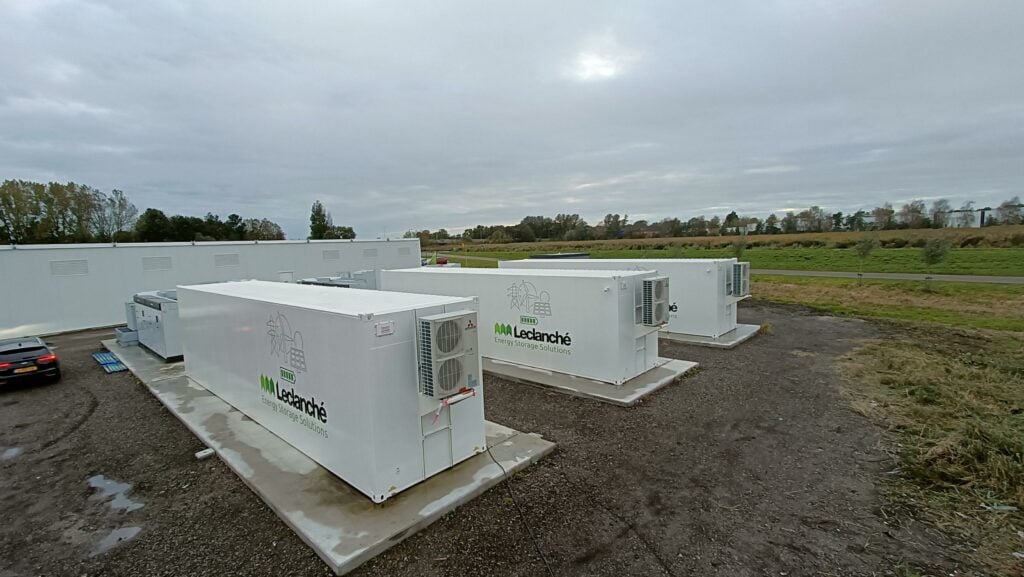
Leclanché completes second Dutch flywheel-lithium hybrid project
In another grid services battery project in the Netherlands with an innovative twist, Leclanché yesterday announced the completion of a hybrid flywheel-lithium project in the country.
It’s the second such project at megawatt-scale in the country for the Switzerland-headquartered BESS technology provider, which collaborated with flywheel manufacturer S4 Energy once again. The pair’s first went into operation in Almelo, east Netherlands, in September 2020, following a small-scale pilot project.
The first combined 8.8MW / 7.12MWh of Leclanché lithium-ion BESS with 3MW of S4 Energy’s KINEXT flywheels, providing 9MW of power to perform Frequency Containment Reserve (FCR) for Dutch transmission system operator (TSO) TenneT.
Separated specifications for the batteries and flywheels were not given for the newly completed project, in the northern Dutch city of Heerhugowaard, but Leclanché did say that it will be a combined 10MW system, performing 1MW of load displacement applications and providing the remaining 9MW of power for FCR.
Leclanché served as engineering, procurement and construction (EPC) contractor and provided a fully-engineered turnkey BESS including power conversion systems (PCS), battery modules and enclosures, as well as the company’s proprietary energy management system (EMS).

